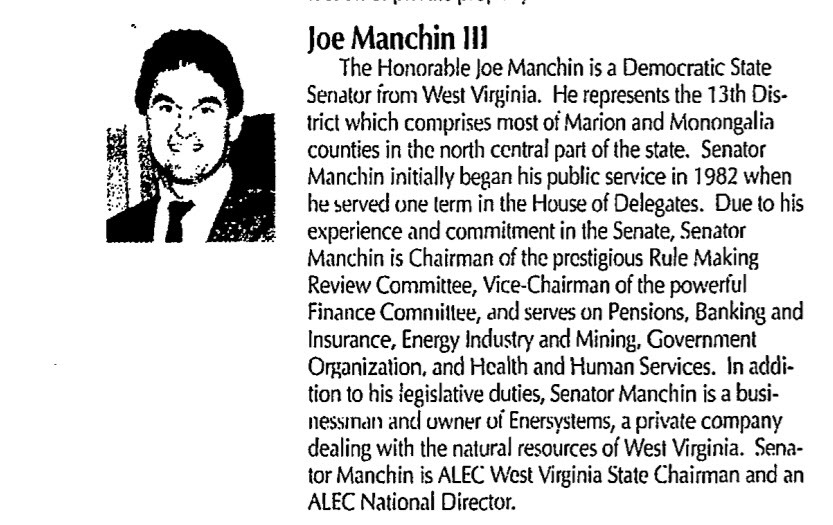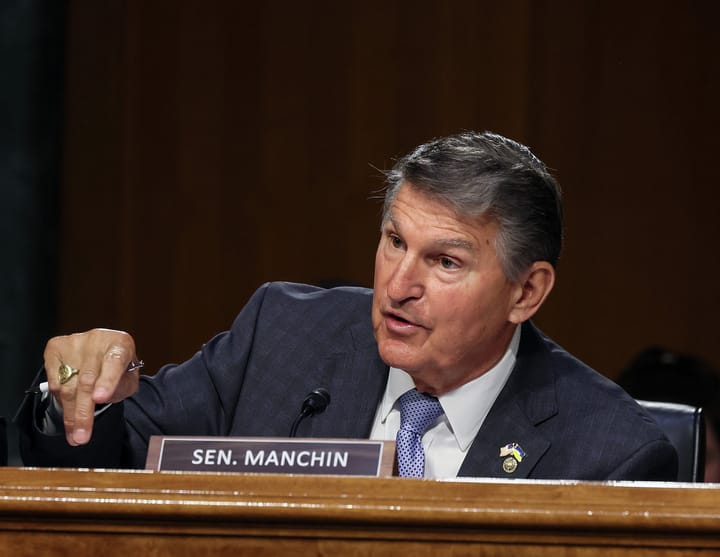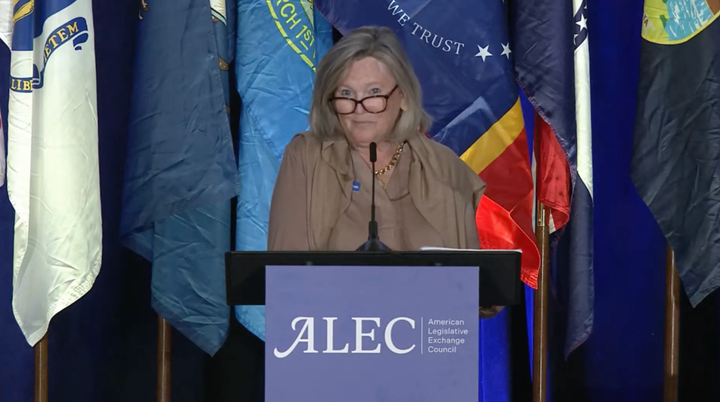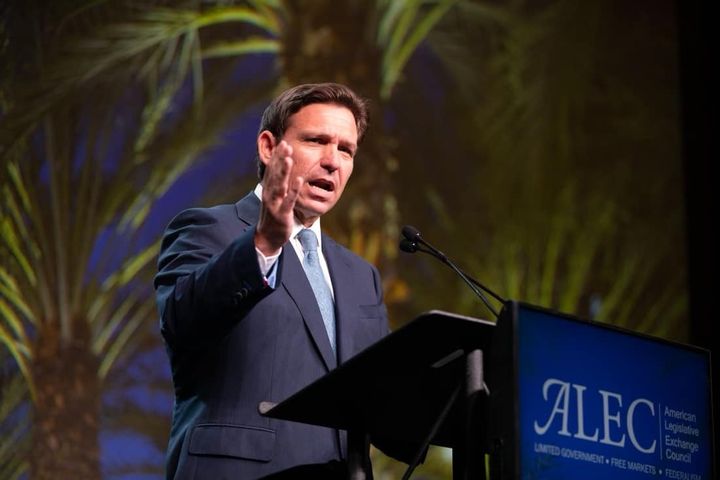States will soon draw the congressional district maps that will shape politics for a decade. While Democrats’ major reform bill proposes independent commissions to keep the maps fair, Senator Joe Manchin has planted himself against the adoption of nonpartisan redistricting.
Over the weekend, Manchin threw a wrench into Democrats’ hopes to pass their major campaign finance and voting access package, the For the People Act (S.1), which includes provisions to ban partisan gerrymandering.
Manchin took to the pages of the Charleston Gazette-Mail with an op-ed announcing his opposition to the bill, hindering its chances of passing under current Senate legislative rules.
Manchin wrote, “I believe that partisan voting legislation will destroy the already weakening binds of our democracy, and for that reason, I will vote against the For the People Act. Furthermore, I will not vote to weaken or eliminate the filibuster.”
By repeatedly describing S. 1 as partisan, Manchin was echoing objections to the bill from Senate Republicans, major conservative groups like Heritage Action that are mounting outside spending campaigns, and lobbying against the reform package by the advocacy group Americans for Prosperity. The Charles and David Koch-constructed Americans for Prosperity has been an ALEC member, and both have received funding from Koch family foundations.
In blocking the For the People Act, which is supported by a coalition of over 200 organizations and over 100 scholars of democracy, Manchin was also furthering the policies of the American Legislative Exchange Council (ALEC), a secretive organization where lobbyists work with conservative lawmakers to advance policies that benefit corporate interests. The first message on ALEC’s website about H.R. 1 is that it would “exacerbate partisanship.” Reports last year revealed that ALEC created a secret working group in 2019 featuring conservative experts in gerrymandering and voter suppression. Americans for Prosperity also foregrounds claims the bill will ramp up polarization.
In 2018, ALEC developed a draft resolution “reaffirming the right of state legislatures to determine electoral districts.” Gerrymandering of congressional districts could net House Republicans enough seats to flip the chamber in the 2022 midterms, according to Samuel S. Wang, director of the Princeton Gerrymandering Project.
The For the People Act contains several provisions that ban partisan gerrymandering, including uniform rules for drawing districts, stronger protections for minority communities, and a requirement that states use independent commissions to draw maps, according to analysis from the nonpartisan Brennan Center.
An April poll released by the group End Citizens United found that in West Virginia, 76% of Republicans and 79% of Independent voters support the For the People Act. End Citizens United is spending millions on a nationwide campaign in support of the bill.
Manchin’s ties to ALEC go back to his rise in West Virginia, where he was elected governor in 2004 before winning a Senate special election in 2010. As a state senator in 1994, Manchin was ALEC’s West Virginia state chairman and an ALEC national director, as recorded in a conference brochure that also flatters him: “In addition to his lawmaking duties, Senator Manchin is a businessman and owner of Enersystems, a private company dealing with the natural resources of West Virginia.”

Enersystems is the privately-held coal brokerage Manchin founded in 1988 and helped run, handing control to his son upon being elected Secretary of State in 2000, and in which he continued to hold up to $5 million in non-public stock, according to recent financial disclosures. Jim Sconyers, chairman of West Virginia’s Sierra Club chapter, said of Manchin in 2011, as the senator defended the coal industry’s policies on environmentally harmful practices like mountaintop removal, “He’s been nothing but a mouthpiece for the coal industry his whole public life.”
Manchin appears to maintain a relationship to ALEC as a U.S. senator. He is listed on a version of ALEC’s webpage, one that goes back to 2017 according to the Internet Archive, as a participant in its federal relations program that is designed to facilitate work between state ALEC members and alumni who have joined the U.S. Congress.
Manchin has a reputation not only for insisting on buy-in from Republicans but also for aligning with big business. Along with fellow Democratic Sen. Kyrsten Sinema, Manchin was recently rewarded with campaign contributions from the U.S. Chamber of Commerce for opposing a $15 minimum wage push, and then headlined a conference of the National Restaurant Association, where he mocked the proposal.
Senate Majority Leader Chuck Schumer has scheduled a vote on the bill in the work session during the last week of June, but barring 10 Republican supporters to reach the 60 vote cloture threshold, it would have required all 50 Democrats to agree to a special rule to vote on voting rights legislation with a simple majority, with Vice President Harris casting the tie-breaking vote.
Manchin wrote of his support for separate voting rights legislation, the John Lewis Voting Rights Advancement Act, but it’s highly unlikely that there are 10 Republican supporters to be found for the bill’s thrust to revitalize the preclearance provision of the Voting Rights Act.
Yet Manchin’s op-ed said his hands were effectively tied by the principles of bipartisanship, if not a single Republican senator will vote to support S. 1. “The truth, I would argue, is that voting and election reform that is done in a partisan manner will all but ensure partisan divisions continue to deepen,” he wrote.
This year, over 100 ALEC-tied politicians have introduced nearly 400 bills that would heighten voter suppression in almost every state nationwide. ALEC’s secretive working group on redistricting was led by GOP attorney and Trump supporter Cleta Mitchell and the Heritage Foundation’s Hans von Spakovsky, who reportedly told a private gathering that “expanding voting rights and nonpartisan redistricting could imperil GOP political power.” ALEC model legislation has been described by voting rights advocates as spreading intimidation tactics that target voters of color to suppress turnout.
Manchin pointedly added that he would not “weaken” the filibuster, but in the past he has supported efforts to reform Senate rules that his office announced would serve to make the chamber more responsive. In 2011, Manchin voted with 47 of then-53 Democratic-aligned senators to support several Senate rules changes that passed, such as ending secret holds and stalling tactics, and in favor of one measure that did not, a requirement that filibusters return to the “talking filibuster” familiar from popular culture.
Today, Manchin has a scheduled meeting with NAACP President Derrick Johnson and Black leaders from groups including National Urban League and the Leadership Conference on Civil and Human Rights to discuss voting rights protections. Next week, the Poor People’s Campaign will hold a March in West Virginia to challenge Manchin’s support from the U.S. Chamber of Commerce and his position on the For the People Act.
An inquiry to Manchin’s Senate office about his ALEC participation and his views on on S. 1’s nonpartisan redistricting provisions did not receive a response.
Originally published at The Brick House Cooperative.



